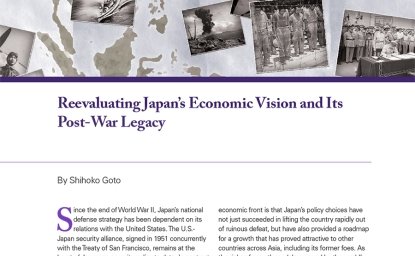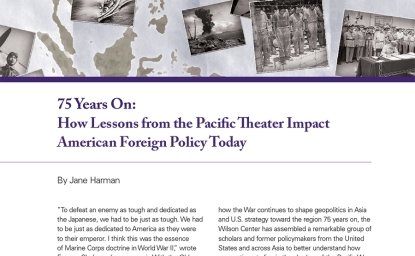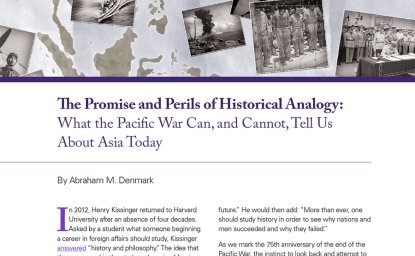Trauma and Triumph: US-China Relations and Memories of the War in the Pacific


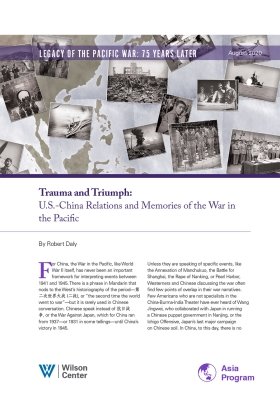
"For China, the War in the Pacific, like World War II itself, has never been an important framework for interpreting events between 1941 and 1945. There is a phrase in Mandarin that nods to the West’s historiography of the period—第二次世界大战 (二战), or “the second time the world went to war”—but it is rarely used in Chinese conversation. Chinese speak instead of 抗日战争, or the War Against Japan, which for China ran from 1937—or 1931 in some tellings—until China’s victory in 1945."
In this report, Robert Daly adopts China’s perspective towards the Pacific War and highlights important divergences in interpretation with the Western view of the conflict, a difference in memory that partially explains some of the increasing tension within the US-China competition. As Dr. Daly argues, divergent Pacific War memories between the Chinese Communist Party and the United States explain in broad terms why the two superpowers are contemplating a new cold war: their mutual distrust is rooted in mythologies established when they fought as allies.
This article is part of the Asia Program’s Legacy of the Pacific War series.
Trauma and Triumph: US-Ch... by The Wilson Center on Scribd
Author


Indo-Pacific Program
The Indo-Pacific Program promotes policy debate and intellectual discussions on US interests in the Asia-Pacific as well as political, economic, security, and social issues relating to the world’s most populous and economically dynamic region. Read more


Kissinger Institute on China and the United States
The Kissinger Institute works to ensure that China policy serves American long-term interests and is founded in understanding of historical and cultural factors in bilateral relations and in accurate assessment of the aspirations of China’s government and people. Read more

Explore More
Browse Insights & Analysis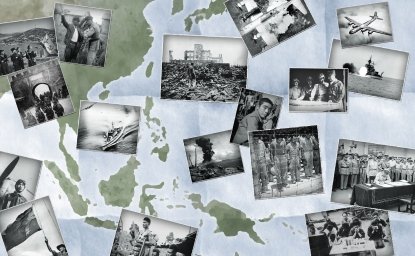
The Legacy of the Pacific War: 75 Years Later
